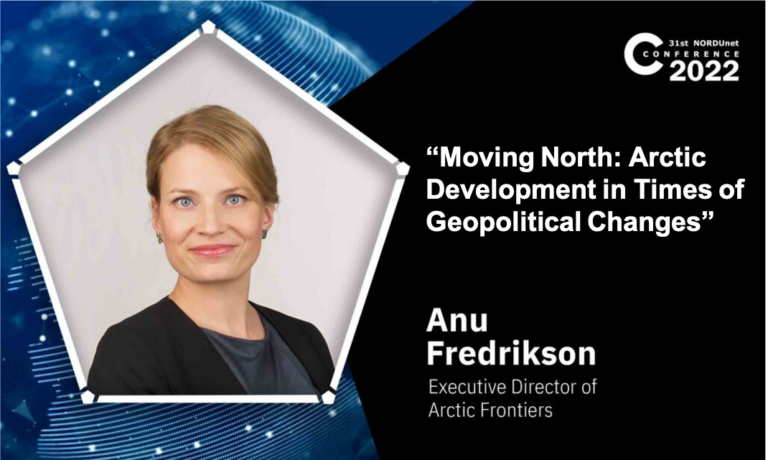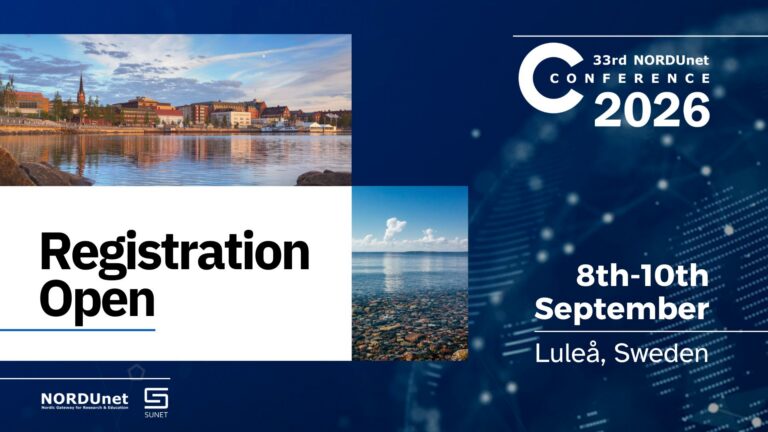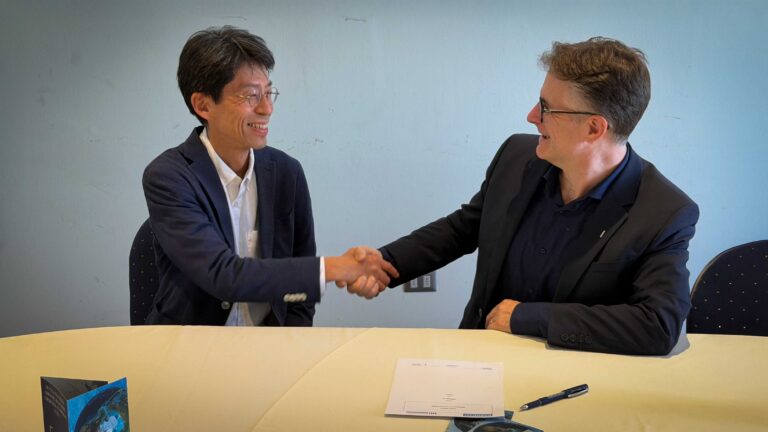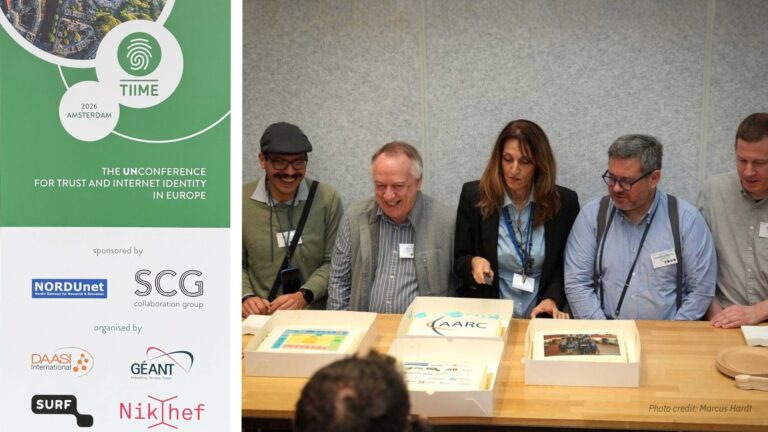Anu Fredrikson, Executive Director of Arctic Frontiers, believes that accelerated European policies for green transition is a great opportunity for the Nordics. Hear her analysis at the NORDUnet Conference 2022.
Arctic Frontiers gather scientists, policy makers, local and indigenous representatives, and businesses for discussions on responsible and knowledge-based development in the Arctic Region. Anu Fredrikson came onboard as Executive Director in October 2020. The NORDUnet Conference is happy to have Fredrikson give a keynote address at a time of increased focus by the five Nordic national research and education networks (NRENs) on improving global connectivity through new submarine cable systems in the Arctic region.
“Arctic Frontiers is not directly involved in the current efforts by NORDUnet and partners to establish submarine cable systems, but we have throughout the years focused on the necessity of better connectivity in the Arctic,” says Anu Fredrikson. “Our purpose is to facilitate knowledge-based business development in the Arctic, and it is obvious that this will take modern connections and removing some of the white spots which continue to exist.”
Still, Anu Fredrikson raises a point of concern:
“I want to emphasize the need for ensuring job creation and local growth in relation to new projects. Too often one has seen projects which have neglected this dimension.”
Stranded Arctic energy resources
Recently, the report The Economic Value of Submarine Cables in the Arctic written by Copenhagen Economics showed large potential societal and economic dividends from investments in submarine cables in the Arctic region. The report was commissioned by the five Nordic NRENs and NORDUnet.
“I agree with many of the conclusions of the report. At the same time, we face a constantly changing playing ground. Due to the war going on in Europe, governments are accelerating their efforts to become energy independent. Competition to find alternatives is fierce, and this may be a platform for unlocking Arctic energy resources which are currently stranded,” Anu Fredrikson comments.
In this context the term stranded refers to the potential for producing renewable energy at competitive costs at many Northern locations, but without having the infrastructure in place to transport this energy to where it is needed. Examples are areas with ample opportunities for producing hydropower, wave energy, and wind energy both onshore and offshore.
“On top of these examples I would point to emerging energy forms such as green and blue hydrogen.”
Blue hydrogen refers to production of hydrogen integrated with carbon capture. Hydrogen can be converted to ammonia which, in turn, can e.g., be used as a fuel in shipping.
Key to assuring local acceptance
Initiatives to establish grids for transporting energy from the Arctic might be revisited due to the increased focus on energy independency. Also, Anu Fredrikson points to a supplementary strategy:
“It would be beneficial to move at least a part of industrial consumption away from the densely populated areas in the South closer to the Northern sites with ample renewable energy resources. For instance, look at data centres. With Internet traffic doubling every two to three years, data centres are responsible for a large part of global power consumption.”
The carbon footprint of data centres already surpassed that of the aviation industry around ten years ago, and just continues to grow.
“Thus, it would make great sense to move data centres to Northern sites. Still, it goes without saying that data centres require reliable high-capacity connectivity,” says Anu Fredrikson.
“Further, this brings me back to my point regarding local job creation. While establishment of new facilities will always bring some level of economic growth to an area, this effect can be temporary. What I would like to see is a true ripple effect from the new projects. This will take a dedicated effort to ensure local employment, and not least knowledge-based employment. For example, a function such as data analysis might well be located at a new Northern data centre rather than at a Southern location.”
“Such active decisions may ensure a lasting sustainable growth. This will benefit the Arctic region and be key to assuring local acceptance.”
Conference participants can attend Anu’s talk on Wednesday 14 September in the plenary session of the conference.











